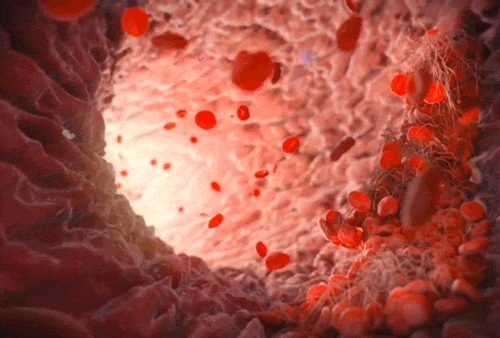
YOUR YEARLY BLOOD TEST
WHAT BLOOD TESTS SHOULD YOU RUN + HOW TO INTERPRET YOUR RESULTS
WHAT EVERY SMART PATIENT SHOULD KNOW
My long-standing patients know that I always recommend getting a blood test every three to six months to monitor good health.
Recently, I met with a new patient to review her blood work and was appalled at what I saw. Test after test, marker after marker, indicated severe physiological imbalances. However, her results were not what appalled me. I was stunned that her physician did not bother to call her to go over her results and explain the nature of her health.
How many of you, go to the doctor’s office feeling like something is ‘off’ and get dismissed when the blood work comes back ‘fine’. If you have ever felt this way, then this newsletter is for you.
The purpose of this newsletter is to (A) instill the idea that you should not rely solely on your doctor’s interpretation of your blood work (B) give insight as to what you should be looking for in a blood test. Therefore, please read the entirety of this lengthy newsletter to fully understand how to assess your health status.
REFERENCE RANGES
The key difference between a physician’s practice and a nutritionist’s practice is the methodology of treatment. A medical doctor typically focuses on treating an immediate dysfunction with an immediate solution. Although a nutritionist can be a valuable tool for treating pre-existing dysfunctions, the nutritionist’s methodology is to PREVENT illnesses.
Because of this, doctors and nutritionists use different reference ranges to assess blood work. A doctor looks through blood work and tries to catch any red flags that may implicate their patients impending doom. A knowledgeable nutritionist reviews blood work for two reasons:
1) to identify existing medical ailments
2) to pick up on signs of a physiological imbalance that may become a pronounced condition 5-7 years down the line.
My patient, referred to above, was furious after I went through her blood work with her. She had been suffering from chronic mental and physical fatigue and KNEW that something was wrong. However, since none of her markers were outside of laboratory reference ranges, she was cleared with a good bill of health and received no medical treatment or solutions. From a nutritionist’s perspective and training, her blood work was littered with red flags and indicated pituitary and adrenal imbalances, which led to weight gain, fatigue, and poor concentration.
FIRST MISTAKE
The first blood work mistake: not ordering enough testing. A CBC, which is what doctors commonly only order, once a year does not reveal enough significant health information. To thoroughly analyze one’s blood and health one must order the following panels as part of their regular blood screening: CBC, LIPID PANEL, VITAMIN D, VITAMIN B-12, HOMOCYSTEINE, CARDIO CRP, TSH, FREE T3, FREE T4, TPO. The following panels are an absolute must for your yearly checkup. I also like to add the following panels to get a better picture of my client’s health: Sed Rate, Free & Total Testosterone for men, Estradiol + Progesterone for women, DHEA, iron & ferritin.
WHAT ARE THESE BLOOD TESTS?
WHY ARE THEY IMPORTANT?
WHAT IS A CBC?
CBC stands for complete blood count. It is a broad screening test, comprised of multiple smaller tests, used to determine an individual’s general health. It is commonly the only blood panel a doctor will order, which is unacceptable.
Although a CBC can be used to assess an individual’s general health, it only provides a limited amount of information. Nevertheless, you must have a yearly CBC to assess the quality of your blood, specifically your red and white blood cells.
A CBC IS USEFUL WHEN:
– diagnosing various conditions, such as anemia, infections, inflammation, bleeding disorders, and leukemia, to name a few.
– A CBC provides an evaluation of white blood cells (the cells that are part of the body’s defense system), evaluation of red blood cells (the cells that transport oxygen throughout the body), mean corpuscular volume (MCV) (a measurement of the average size of RBCs), mean corpuscular hemoglobin (MCH) (a calculation of the average amount of oxygen-carrying hemoglobin inside a red blood cell), to name a few.
Normal lab reference ranges can be used to assess the adequacy of these results.
LIPID PROFILE
The lipid profile is a group of tests that are often ordered together to determine cholesterol levels and cardiovascular risk. A normal lipid panel provides insight on total cholesterol, HDL cholesterol, LDL cholesterol, and triglycerides. Unfortunately, Statin pharmaceutical companies have given cholesterol a bad name and have caused the public to be misinformed in the matter of cholesterol.
A few things you should know:
1) HDL (good cholesterol) and LDL (bad cholesterol) are not forms of cholesterol; they are proteins responsible for carrying cholesterol to different parts of the body.
2) Cholesterol is vitally important for the production of neurotransmitters and hormones. Low or suppressed cholesterol can cause low testosterone and depression.
3) LDL is not as bad as you think it is.
4) Triglycerides represent the fat circulating in your blood and not cholesterol.
When examined properly, results from your lipid profile can provide powerful insight on your body’s ability to metabolize sugars and fats, as well as your body’s ability to produce key structures like hormones and brain chemicals. Unfortunately, lipid profiles are typically incorrectly assessed.
Your HDL should be above 60 mg/dL
Your LDL depends on your age and gender and should not be as low as many may have you believe
Triglycerides should be below 85 mg/dL
Total cholesterol does not mean a thing! Delete that number from your mind!!!!
There are many reasons why your lipid profile may be out of range. It is imperative that you determine the cause before you are prescribed to a treatment.
VITAMIN D
Vitamin D (25-hydroxyvitamin D) is most commonly used to determine bone weakness, bone malformation, or abnormal metabolism of calcium. This pseudo-vitamin is essential for cell to cell communication and can also be used to assess the risk of developing dysfunctions such as diabetes, cancer, and hormone imbalances.
Since vitamin D is a fat-soluble vitamin and is absorbed through the intestine like a fat, vitamin D is used to monitor individuals with diseases that interfere with fat absorption, such as cystic fibrosis and Crohn’s disease.
Regardless of the person’s shape, size, weight, age, or condition, vitamin D should always be above 40 ng/mL.
VITAMIN B-12
Vitamin B12 is primarily ordered to help diagnose the cause of certain anemias. One type of associated anemia is pernicious anemia, an autoimmune disease that affects the absorption of B12. B-12 deficiencies can also be caused by insufficient intake, improper food combining, surgery, alcoholism, liver disease, gastric cancer, malabsorption conditions, to name a few.
The way in which B-12 is assessed in the medical community is an absolute joke and provides an example as to why you should never solely rely on lab reference ranges to assess adequacy. The typical lab reference range for B-12 is between 200 pg/mL – 900 pg/mL. As you can see, this is a very wide reference range.
B-12 should never be below 600 pg/mL. Long standing B-12 deficiencies can cause an array of problems that must be treated with more than just B-12 supplementation. You must see a nutritionist if your B-12 is between below 400 pg/mL.
HOMOCYSTEINE
Homocysteine is a sulfur-containing amino acid that is broken down in the body through two metabolic pathways. The chemical changes that must occur to break down homocysteine require the presence of folic acid and B-12. The level of homocysteine in the blood is influenced by the presence of these substances. Homocysteine concentration may be elevated before B-12 and Folate tests are abnormal. Homocysteine is ordered as part of a screen for people at high risk for heart disease or stroke as elevated homocysteine plays a role in the progression of cardiovascular disease.
Although elevated homocysteine can be caused by several nutrient deficiencies, it can also be caused by a genetic mutation that affects 20% of the population. A proper assessment is needed to determine both the cause and treatment for elevated homocysteine.
Homocysteine levels should not be above 8 mmol/L.
CRP
C-reactive protein (CRP) is a non-specific test used to detect inflammation if there is a suspicion of tissue injury or infection. However, this test cannot tell where the inflammation is or what condition is causing it. CRP cannot be used to diagnose any condition but can be used together with other signs, symptoms, and tests to evaluate an individual for an inflammatory condition. CRP should always be below 3 mg/L.
TSH
TSH is often the test of choice for evaluating thyroid function and symptoms of hyperthyroidism or hypothyroidism. However, other thyroid tests MUST be used for a proper thyroid diagnosis. TSH, thyroid stimulating hormone, is a hormone the brain secretes to stimulate thyroid function. Skewed TSH levels are NOT commonly caused by thyroid dysfunctions, but are normally a result of other glandular dysfunctions and nutrient deficiencies. Abnormal TSH levels can indicate adrenal, pituitary, and hypothalamus dysfunctions, along with thyroid disorders.
In spite of this, it has become common practice to prescribe thyroid medication when TSH levels are too high. Improper use of thyroid medication can permanently destroy thyroid function.
TSH levels depend on age, gender, and certain medication use, but should be within 1.5 – 2. See a nutritionist if your TSH is not within those ranges.
FREE T4
Total T4 and free T4 (thyroxine) are two separate tests that can help a doctor evaluate thyroid function. The total T4 test has been used for many years to help diagnose hyper and hypothyroidism. It is a useful test but can be affected by the amount of protein available in the blood to bind to the hormone. The free T4 test is a newer test that is not affected by protein levels. Free T4 is thought by many (including myself) to be a more accurate reflection of thyroid hormone function.
Furthermore, 80 percent of T4 is converted into another thyroid hormone called T3. Improper T4 levels can be caused by insufficient T4 production, excess thyroid hormone conversion, multiple forms of thyroid dysfunction, nutrient deficiencies, etc.
Free T4 should be between 1-1.4 ng/dL but depends on multiple other factors. See a nutritionist if your Free T4 is not within those ranges.
FREE T3
A T3 test MUST also be used to assess thyroid function. Like total T4, total T3 can be skewed by protein levels, but free T3 is not. Abnormal free T3 does not necessarily reflect thyroid dysfunction; many times poor T3 levels reflect hormonal imbalances, such as excess estrogen, adrenal fatigue, pituitary tumors, etc.
Free T3 levels should be between 3-3.7 pg/mL, but depends on multiple other factors. See a nutritionist if your Free T3 is not within those ranges.
TPO
TPO is used to detect the presence and measure the number of specific thyroid autoantibodies. Thyroid autoantibodies are antibodies that develop when a person’s immune system mistakenly targets components of the thyroid gland or thyroid proteins, leading to chronic inflammation of the thyroid (thyroiditis), tissue damage, and disruption of thyroid function.
TPO values should be below 10 IU/mL.
MORAL OF THE STORY
1) Do not rely solely on lab reference ranges to assess your state of health.
2) You must have a variety of different blood tests for an adequate health review.
3) Always determine the cause before ascribing to a specific solution.
4) If you are not happy with the interpretation of your blood work – GET A SECOND OPINION.
5) Review your blood work with a nutritionist like myself who is competent in reading blood work.
Contact me if you have any questions on the interpretation of previous blood work. It would be a shame to let an imbalance turn into a serious condition when it could have been easily resolved with simple nutritional interventions. AVOID THE AVOIDABLE!!!!!!!
